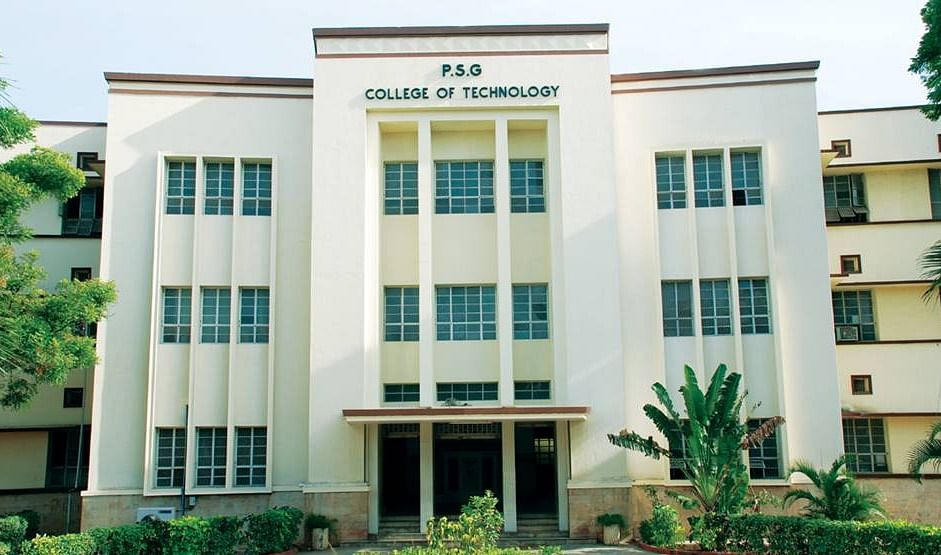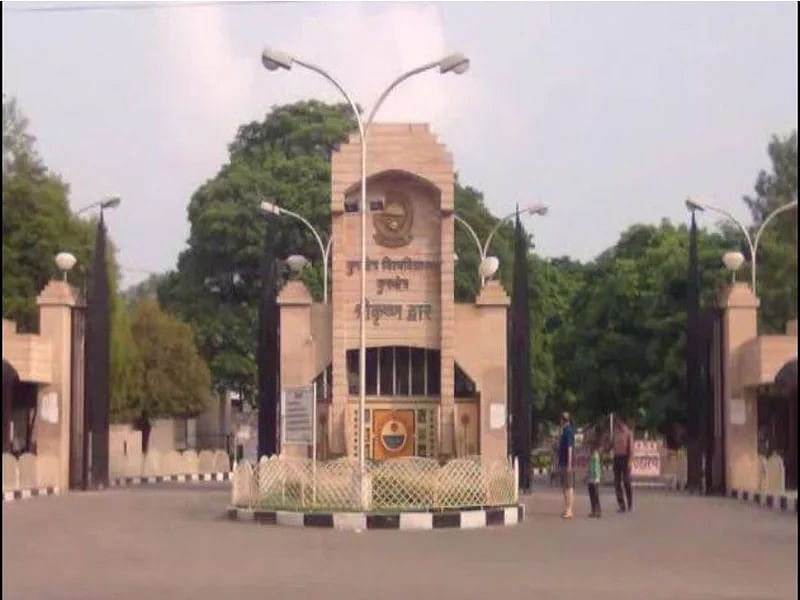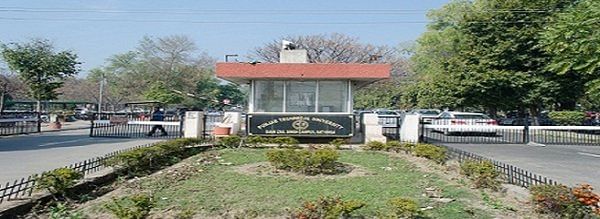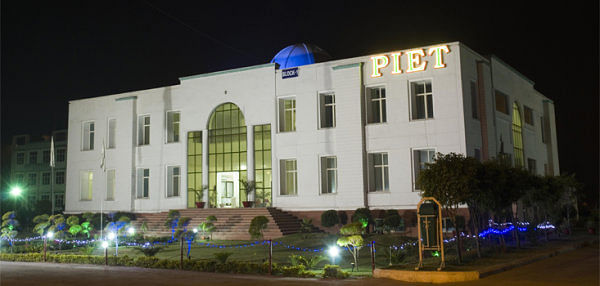B.Tech Textile Engineering: Course Details, Eligibility, Fees, Admission

B.Tech Textile Engineering is a 4-year undergraduate course that deals with subjects related to the design, manufacturing process and procurement of the textile and is designed to give students a solid foundation in the machines and other technology used in textile engineering, allowing them to conduct the study. B.Tech Textile Engineering course has multiple job opportunities in many different sectors such as textile industries, clothing Industry, colleges and universities, research institutes, government departments, medical industry, etc.
Table of Contents
- About B.Tech Textile Engineering
- Eligibility Criteria for B.Tech Textile Engineering
- How To Get Admission for B.Tech Textile Engineering?
- Popular Entrance Exams for B.Tech Textile Engineering
- Top B.Tech Textile Engineering Colleges in India
- Fee Structure for B.Tech Textile Engineering
- Syllabus and Subjects for B.Tech Textile Engineering
- Why Choose B.Tech Textile Engineering?
- Preparation Tips for B.Tech Textile Engineering
- Scope For Higher Education in B.Tech Textile Engineering
- Salary of a B.Tech Textile Engineer
- Career Options After B.Tech Textile Engineering
- Skills That Makes You The Best Textile Engineer
B.Tech Textile Engineering Course Details
| Degree | Bachelors |
| Full Form | Bachelor of Technology in Textile Engineering |
| Duration | 4 Years |
| Age | No age limit |
| Minimum Percentage | Must have passed 12th grade in the science stream |
| Average Fees | ₹50K - 15 LPA |
| Average Salary | INR 4 LPA (Source: Payscale) |
| Employment Roles | Stylist, Furniture Designer, Fashion Designer, Clothing/Textile Technologist, Product Designer, Interior and Spatial Designer, etc. |
About B.Tech Textile Engineering
According to Wikiversity, “Textile engineering (TE) or textile technology deals with the application of scientific and engineering principles to the design and control of all aspects of fiber, textile, and apparel processes, products, and machinery. These include natural and man-made materials, interaction of materials with machines, safety and health, energy conservation, and waste and pollution control. ”
Subjects in B.Tech Textile Engineering are organised logically to provide students with a solid foundation in technical concepts before moving on to applied concepts. Polymer and fiber science, elements of computer graphics, elements of instrumentation and control engineering, and other traditional engineering subjects are just a few examples.
Job scope in India includes research and development, technical sales, quality control, production control, and corporate management are divisions involved in the textile engineering operation. Handloom and mechanised textiles are the two primary textile industries in India.
The following are the tools and technologies used in B.Tech Textile Engineering:
- Configuration Management Tools
- Data Modelling Tools
- Program Transformation
- Source Code Generation
- Unified Modeling Language
Eligibility Criteria for B.Tech Textile Engineering
Admission for B.Tech Textile Engineering requires applicants to have passed their 12th grade from a recognized board with a minimum of 50% aggregate marks in mathematics, physics, and chemistry. There is no age limit for pursuing this course. Applicants must have passed the entrance examination provided by the college or university.
How To Get Admission for B.Tech Textile Engineering?
Admission procedure for the B.Tech Textile Engineering course are determined by the student's performance in the entrance exam scores or on a merit basis. Some engineering colleges conduct their exams to determine student eligibility. The colleges/universities use various measures to select aspirants, including entrance exams and board exam scores. The course falls under the umbrella of the B.Tech course and thus follows a similar admission process.
The following is the procedure for applying to the B.Tech Textile Engineering course:
Apply For the Course
Students may complete the admission process offline or online. They must submit all relevant paperwork, including their Aadhar card number, address verification, domicile, and 10th and 12th mark sheets.
Selection Process
Some colleges require students to take written tests, group discussion and personal interviews. After the selection process, shortlisted students should verify their documents.
Read More on B.Tech Admission
Popular Entrance Exams for B.Tech Textile Engineering
Students opting to take B.Tech Textile Engineering have to clear the entrance exam. Most aspirants start preparing for the entrance exams during Class 12. Admission will be granted on a merit-basis. The following are the entry exams for B.Tech Textile Engineering:
A Quick Glance at the B.Tech Textile Engineering Entrance Exams
B.Tech Textile Engineering is a specialised engineering branch. The format of the entrance exam is listed below:
- There are different parts of the entrance exam pattern, like analytical, logical, quantitative, etc.
- The entrance exam takes around three hours to complete.
- The exam can be taken online or offline, depending on the colleges/universities.
- The exam pattern may change according to the colleges/universities.
Top B.Tech Textile Engineering Colleges in India
Since B.Tech Textile Engineering is one of the most popular courses, below is a compilation of the best B.Tech Textile Engineering colleges in India, according to NIRF:
| NIRF Rankings | Colleges |
| 2 | IIT, Delhi |
| 14 | Anna University Chennai |
| 18 | ICT Mumbai |
| 49 | PSG College of Technology Coimbatore |
| 52 | Dr.BR Ambedkar National Insititute of Technology |
| 71 | Veermata Jijabai Technological Institute Mumbai |
Fee Structure for B.Tech Textile Engineering
B.Tech Textile Engineering is a four-year undergraduate programme that is divided into eight semesters. The average fees of the B.Tech Textile Engineering course may vary by institutes. Following is a list of some of the best B.Tech Textile Engineering colleges in India, organised by fee structure:
| Colleges | Total Fees Structure |
| IIT Delhi | INR 8.47 Lakhs |
| Anna University | INR 7.20 Lakhs |
| ICT | INR 3.41 Lakhs |
| PSG College of Technology | INR 2 Lakhs |
| Dr B. R. Ambedkar National Institute of Technology | INR 6.76 Lakhs |
Syllabus and Subjects for B.Tech Textile Engineering
B.Tech Textile Engineering course is four years of an undergraduate program, which is divided into eight different semesters. B.Tech Textile Engineering students have a range of career openings based on their expertise and experience in textile fabrication. The syllabus and subjects for the B.Tech Textile Engineering course are listed below:
- Analysis of Textile Chemicals
- Fibre Testing & Analysis Lab
- The Technology of Textile Polymers
- Colour Physics & Color Harmony
- Testing of Textile Materials
- Finishing & Evaluation of Textiles
Read More: B.Tech Textile Engineering Syllabus and Subjects
Why Choose B.Tech Textile Engineering?
B.Tech Textile Engineering is a degree that focuses on solving problems in India's textile industry. Let's take a peek at the B.Tech Textile Engineering curriculum.
What is B.Tech Textile Engineering All About?
B.Tech Textile Engineering is a 4-year undergraduate course that focuses on incorporating innovative technological progress to manufacture cotton and fabrics. B.Tech Textile Engineering requires studying various techniques and technology used in the textile industry to manufacture clothing.
Some of the B.Tech Textile Engineering course subjects include technical english, engineering mechanics, chemistry, introduction to technical textiles, etc. B.Tech Textile Engineering job scope is vast. B.Tech Textile Engineering students can be hired as textile designers, process engineers, medical textile designers, and many more roles.
What Does a Textile Engineer Do?
B.Tech Textile Engineers use various materials, including human-made, natural textiles, fur, plastics, leather, and metals.
B.Tech Textile Engineers responsibilities include:
- Producing Samples
- Dyeing and Printing Textiles
- Creating Products in Response to Given Briefs
- Amending Design
- Providing Technical Advice to Fashion Designers
B.Tech Textile Engineers would have to think about economic feasibility, sustainability, and resource conservation. Textile engineers design and develop the processes, equipment, and procedures that create all these fabrics, fibers, and yarns.
Reasons Why Textile Engineering Can Fetch You a Rewarding Career?
Textile engineering is a promising area in which students can pursue a rewarding career. Following are some of the reasons:
Environmental Change: Water, energy, and harmful chemicals used in the clothing industry impact the environment. So how do textile engineers help prevent or reduce this? They do so by reducing chemical usage, replacing them with enzymes, and utilising less energy.
Future Growth: The Indian textiles industry seems to have a great future, boosted by good local and overseas demand. With the usage and disposable income, the retail sector has seen rapid growth over the last decade, with overseas players, including Marks & Spencer, Guess, and Next, entering the Indian market.
Read More: B.Tech Textile Engineering Jobs and Scope
Preparation Tips for B.Tech Textile Engineering
Specific protocols must be followed by students studying for B.Tech Textile Engineering:
Make a Proper Plan: Students must give importance to research practical application.
Market Research: Market analysis is the method of personally interviewing prospective buyers to determine a new service or product's feasibility. The market analysis enables a business to identify it's target market and obtain customers' views and inputs about a product or service.
Build Network: Students must connect with their seniors for guidance.
Scope For Higher Education in B.Tech Textile Engineering
Since textiles' demand and availability will never diminish, the B.Tech Textile Engineering course provides students with a promising future. As a result, textile engineering's scope has grown over time, opening up various work opportunities both in India and abroad. Graduates of B.Tech Textile Engineering may obtain advanced degrees such as a PhD in Textile Engineering. Here is the list of courses one can pursue after completion of B.Tech Textile Engineering:
- M.Tech in Textile Technology
- M.Tech in Textile Engineering
- M.Tech in Textile Chemistry
Salary of a B.Tech Textile Engineer
B.Tech Textile Engineering can secure your future and help the students get hired for job profiles in the textile mills, apparel manufacturing units, etc. Some of the well-known companies available to these students include Raymond, Vardhman, Trident, etc. In India, the average B. Tech Textile Engineering salary for freshers is around INR 4 LPA.
Read More: B.Tech Textile Engineering Salary
Career Options After B.Tech Textile Engineering
Textile Engineering is a branch of engineering that deals with textile plants and industries' design and management, as well as the construction of textile processes for converting raw materials into finished products. Graduates can work in the following job roles if they have a B.Tech Textile Engineering degree:
- Textile Research
- Textile Research Scientist
- Textile Design
- Textile Designer
- Textile Production
- Textile Converter
- Textile Marketing and Sales
- Market Analyst
- Textile Administration
- Personnel Administrator
- Careers In Apparel Design and Production
- Apparel Design
- Apparel Manufacturing
- Production Management
Skills That Makes You The Best Textile Engineer
B.Tech Textile Engineering graduates are responsible for creating modern manufacturing technologies, designing trendy clothing, and changing existing processes. The best textile engineers have the following skills:
- Creative Flair
- Artistic Ability
- A Good Eye For Colour, Patterns, Texture, and Fabrics
- Excellent Attention to Detail
- Interest in Fashion and Textiles
- Understanding of Trends and Materials
- Understanding Different Textile Processes and Techniques
- Creativity
- Technical Knowledge
- Commercial Awareness of The Textile Industry
- Research
- Data Handling Capacity
- Critical Analysis and Interpretation Of Materials
Check other important B.Tech Courses
Top B.Tech Textile Engineering Colleges
Top Engineering Entrance Exams
B.Tech Textile Engineering Fee Structure
FAQs on B.Tech Textile Engineering
Q: What is Technical Textiles?
Q: What after B.Tech Textile engineering?
Q: What is the scope of textile engineering?
Q: Is Textile Engineering a difficult career path?
Q: What is the average salary for a fresher in Textile Engineering?























